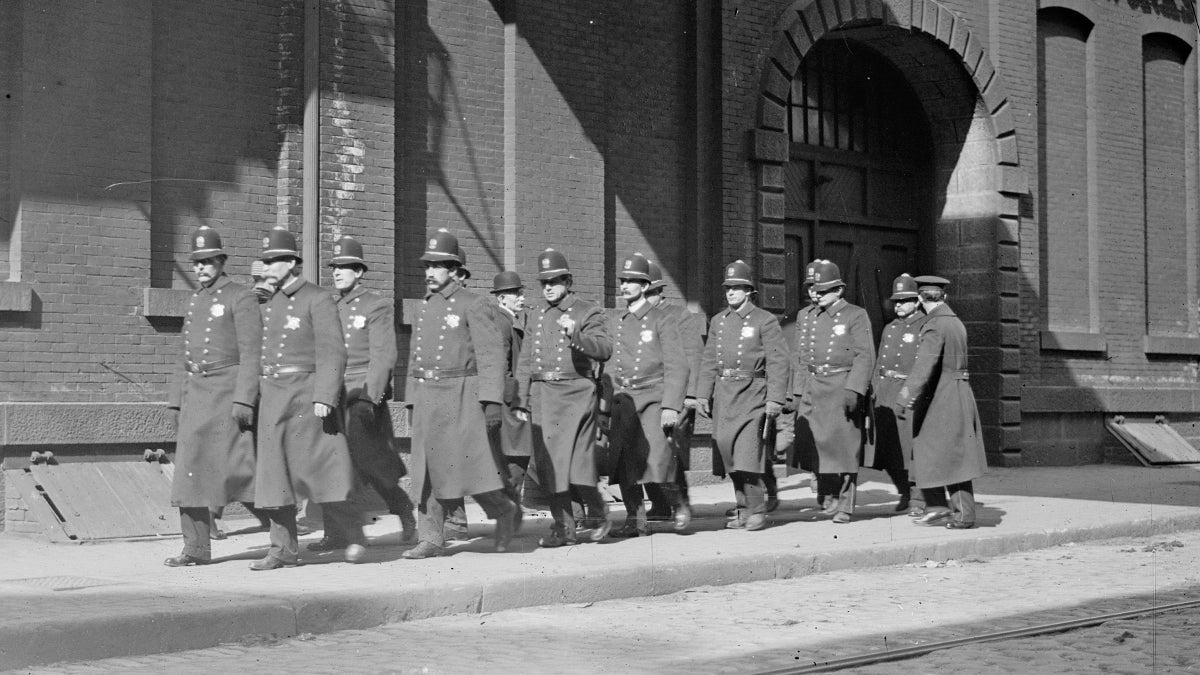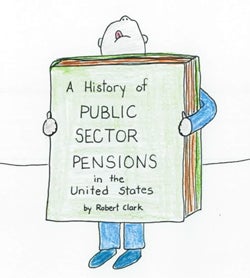Romans, booty and sailors: all part of the history of pensions
Listen
Large cities began offering pensions to police officers and firefighters in the 1800s. In the photograph, police patrol marching outside Baldwin Locomotive Works in Philadelphia, Pa. circa 1910. (Image courtesy of the Library of Congress)
Unfunded pensions have been around for thousands of years—even as far back as the Roman Republic.
As we were reporting on the problem of unfunded pensions in Pennsylvania, it occurred to us to ask: How did pensions come about, anyway? Who ever thought to let people retire and keep paying them after they’ve stopped working? And is the problem of underfunded pensions a recent phenomenon?

Our attempts to answer these questions pointed us to North Carolina State University professor of economics Robert Clark, who wrote “A History of Public Sector Pensions in the United States.”
In the book, Clark makes the point that this problem of underfunded pensions has been around for thousands of years—even as far back as the Roman Republic. Clark says Romans gave their retired soldiers land as a way to keep them loyal, but actual payments happened on a case-by-case basis, leaving some soldiers without benefits. The nonpayment of this promised land had a hand in the fall of the Republic and the rise of the Roman Empire.

In North America, 1,500 years later, the English colonies similarly provided retirement benefits to militias. The first pensions in the United States went to naval officers and sailors during the Revolutionary War. Those pensions were funded by the spoils of war—the navy captured ships on the high seas and sold the booty from those ships to fund pensions.

In the 19th century, Congress established a navy pension fund and allowed its managers to make investments to keep it funded. But the fund lost money in bad investments. Clark writes that “some investment decisions seem to have been influenced by political pressures” and eventually the fund had to be bailed out by Congress.
The trend of funding problems continued as pensions became available outside the military.
In the late 1800s, large cities started offering pensions to the civilian equivalent of the military—police officers and firefighters—and, later, to teachers. Many of these early plans were strictly disability plans, or funded almost entirely with contributions from the workers themselves, writes Clark. When cities did contribute, it was inconsistent—funding was cobbled together from everything from the selling of permits for dancing schools and boxing contests, to various license fees, cash from the sale of condemned property, and even disciplinary fines imposed on police officers and firefighters.

Eventually, public pensions were expanded to include other government workers, as they do today.
While a lot has changed, many municipalities still have a hard time funding their pension obligations. We asked Clark why we haven’t learned to plan better in all that time.
He said it’s because of politics.
“You have governments that would like to attract workers,” said Clark. “But they’d like to do it for the least cost.”
Pensions can be a way to do that, he says.
“You can promise all these nice things for your workers, but you don’t have to tax today’s people,” Clark said. “And politicians are often looking at what happens today and how they’re being viewed.”
And that pretty much brings us up to date.
WHYY is your source for fact-based, in-depth journalism and information. As a nonprofit organization, we rely on financial support from readers like you. Please give today.






